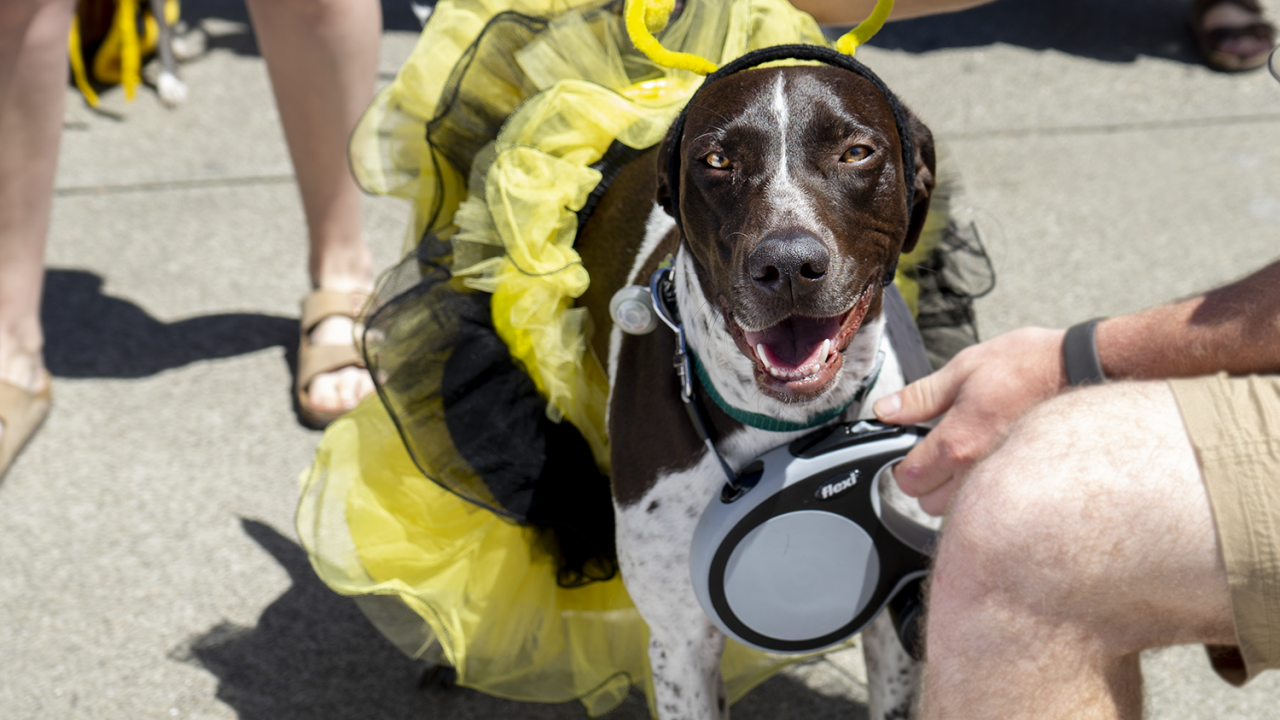
A Sweet New Year
A Sweet New Year
As the year comes to a close, we at the Honey and Pollination Center wish to express our gratitude for your support of the work we did in 2019.
On Picnic Day, the plaza outside the Robert Mondavi Institute’s Sensory Building was once again filled with students, families and people (and their dogs) dressed as bees! Over 2000 people tasted honey from the center and enjoyed the grape vine give-away, olive oil samples, and delicious ice cream from UC Davis food science students!
The California Honey Festival, held in downtown Woodland, Calif., saw nearly 35,000 visitors of all ages, who tasted varietal honeys, enjoyed live music, and learned about bees and other pollinators. This family-friendly event wouldn’t “bee” what is without the collaboration of the UC Davis Arboretum and Public Garden, the UC Davis Department of Entomology and Nematology, the Bohart Museum at UC Davis, the Master Beekeepers, the Häagen-Dazs Honey Bee Haven. . . the list goes on. The festival is a HUGE effort!
In July, the Honey and Pollination Center joined the UC Davis Department of Entomology and Nematology to present the 4th International Pollinator Conference. Over 250 Entomologists, graduate students, researchers and educators traveled from across the globe to meet at UC Davis. They shared their research in talks, poster sessions, and in meetings throughout the three day conference.
Mead Courses: UC Davis is the only university in the world that offers mead making short courses. Working with the UC Davis Department of Viticulture and Enology, the center has created a series of practical, hands-on courses that train participants in sensory science, microbiology, and the effects of different varietal honeys on the flavor and aroma of meads. We are working on a program to educate sommeliers in the distinctive qualities of mead.
Varietal honey research and evaluation: For the last several years we have offered a short course termed the Sensory Evaluation of Honey. We have added strands on nutrition, adulteration, allergies, and food preparation. The center is taking the lead on varietal honey research by helping to create baseline flavor profiles for North America’s most common honeys. Using a variety of resources, such as gas chromatography, the center will lay the groundwork for the creation of a nuclear magnetic resonance (NMR) database to ensure quality standards for North American honeys.
Enhancing the garden: In partnership with the UC Davis Arboretum and Public Garden, the center has enhanced the Good Life Garden, and created an edible landscape used for teaching and hand-on learning. Today, the beds are filled with pollinator-friendly plants, many of which grow produce that’s used in student kitchens. We are also working on interpretive signage, and soon we hope to place a beehive under the fruit trees!
2019 has been both exhilarating and exhausting. We do a lot for such a small crew – but we would not have it any other way. Liz and I really are as busy as bees! We hope you will come visit us at one of our many events in the coming year. (January 2020: Mead Making BootCamp and Mead Making 101)

